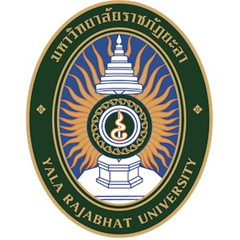Impacts of Online Learning toward Teachers Performance in EFL Classes
DOI:
https://doi.org/10.30983/mj.v2i2.5996Keywords:
online learning, opening and closing lesson, explaining, variation skillAbstract
This study aimed at determining the impact of online learning on teacher performance in applying the skills of opening and closing lessons, explaining skill and variation skill. This research was qualitative research in the form of a case study. The subjects in this study were three English teachers at MTsN Padang Panjang. The instruments used to collect data were interviews, questionnaires, and observations of the participants' online learning recordings. Interviews and observations were used to obtain primary data, while questionnaires were used to obtain secondary data. The data obtained were compared with the ideal criteria for applying the three teaching skills above taken from Helmiati's book. This book was used as guidance because it has been used as a reference for many Universities in Micro Teaching course. From the comparison differences were found, from the differences, the impact of online learning on teacher performance in applying the three teaching skills above were concluded. From the results of the study, it was concluded that online learning had impact on teacher performance in applying the three teaching skills. First, not all of the ideal criteria done by the teachers, second teachers did the ideal criteria in limited form because of the limited time available, third the teachers did the criteria in inappropriate time so that the aim of the criteria was not achieved.
Penelitian ini bertujuan untuk mengetahui dampak dari pembelajaran daring terhadap performa guru dalam mengaplikasikan keterampilan membuka dan menutup pelajaran, keterampilan menjelaskan dan keterampilan mengadakan variasi dalam mengajar. Penelitian ini adalah penelitian kualitatif berbentuk studi kasus. Subjek dalam penelitian ini adalah tiga guru Bahasa Inggris di MtsN Padang Panjang. Instrumen yang digunakan sebagai alat pengumpul data adalah wawancara, kuesioner, dan observasi terhadap rekaman pembelajaran online para partisipan. Wawancara dan observasi digunakan untuk mendapatkan data primer, sedangkan kuesioner digunakan untuk mendapatkan data sekunder. Data-data yang didapat dibandingkan dengan kriteria ideal penerapan tiga keterampilan mengajar di atas yang diambil dari buku Micro Teaching tulisan Helmiati. Buku ini digunakan sebagai rujukan karena telah digunakan oleh banyak perguruan tinggi sebagai rujukan dalam mata kuliah micro teaching. Dari perbandingan, perbedaan-perbedaan ditemukan, dari perbedaan-perbedaan tersebut maka implikasi-implikasi pembelajaran daring terhadap performa guru dalam mengaplikasikan tiga keterampilan mengajar di atas disimpulkan. Dari hasil penelitian disimpulkan bahwa pembelajaran daring memiliki dampak terhadap performa guru dalam mengaplikasikan tiga keterampilan mengajar. Yang pertama, guru tidak melakukan semua komponen-komponen yang semestinya dilakukan atau tidak sesuai dengan kriteria ideal, yang kedua, guru melakukan komponent atau kriteria yang ideal namun melakukannya dalam bentuk terbatas karena keterbatasan waktu, dan yang ketiga, guru melakukan kriteria pada saat yang tidak tepat sehingga maksud dari penerapan kriteria tersebut tidak tercapai.
References
Atmojo, A. E. P., & Nugroho, A. (2020). EFL Classes Must Go Online! Teaching Activities and Challenges during COVID-19 Pandemic in Indonesia. Register Journal, 13(1), 49–76. https://doi.org/10.18326/rgt.v13i1.49-76
Fauzi, Anis and Lugowi, Ahmad. 2009. â€Pembelajaran Mikro: Suatu Konsep dan Aplikasiâ€. Jakarta: Penerbit Diadit Media
Helmiati, (2014). Micro Teaching : “Melatih Keterampilan Dasar Mengajarâ€. Yogyakarta:Aswaja Presindo
Kumala, Siti Nur. 2016. “Pengaruh Keterampilan Dasar Mengajar Guru DanMotivasi Belajar Terhadap Hasil Belajar Siswa Kelas X Di Man Se-Kabupaten Blitar Tahun Ajaran 2015/2016â€. Program Studi Pendidikan Agama Islam Pascasarjana IAIN Tulung agung
Ladyshewsky, Richard K. 2004. Online learning versus face to face learning: What is the difference ? In Seeking Educational Excellence. Proceedings of the 13th Annual Teaching Learning Forum, 9-10 February 2004. Perth: Murdoch University. https://litec.curtin.edu.au/events/conferences/tlf/tlf2004/ladyshewsky.html
Lestiyanawati, R. (2020). The Strategies and Problems Faced by Indonesian Teachers in Conducting e-learning during COVID-19 Outbreak. CLLiENT (Culture, Literature, Linguistics, and English Teaching), 2(1), 71–82. https://doi.org/10.32699/cllient.v2i1.1271
Loewenstein, George. 1994. “The Psychology of Curiosity: A Review and Reinterpretationâ€. Psychological Bulletin 1994, Vol. 116, No. 1, 75-98.
Mansyur. 2017. â€Keterampilan Dasar Mengajar Dan Penguasaan Kompetensi Guru (Suatu Proses Pembelajaran Micro)â€. el-Ghiroh. Vol. XII, No. 01. Februari 2017
Moore,Joi L. 2010. “E-Learning, Online Learning, and Distance Learning Environments: Are they The Same?â€. Internet and Higher Education (2010)
Rulandari, N. (2020). The Impact of the Covid-19 Pandemic on the World of Education in Indonesia. Ilomata International Journal of Social Science, 1(4), 242–250. https://doi.org/10.52728/ijss.v1i4.174
Sangrà , Albert. 2012. â€Building an Inclusive Definition of E-Learning: An Approach to the Conceptual Frameworkâ€. International Review of Research in Open and Distributed Learning Volume 13, Number 2, April 2012.
Setiati, Siti and Azwar, Muhammad K. 2020. “Covid-19 and Indonesiaâ€. Acta Med Indones - Indones J Intern Med Volume 52, Number 1, January 2020
Yulia, H. (2020). Online Learning to Prevent the Spread of Pandemic Corona Virus in Indonesia. ETERNAL (English Teaching Journal), 11(1), 48–56. https://doi.org/10.26877/eternal.v11i1.6068
Downloads
Published
How to Cite
Issue
Section
Citation Check
License
Copyright (c) 2022 Rini Hendrita

This work is licensed under a Creative Commons Attribution-ShareAlike 4.0 International License.
Authors who publish with this journal agree to the following terms:
- Authors retain copyright and grant the journal right of first publication with the work simultaneously licensed under a Creative Commons Attribution License that allows others to share the work with an acknowledgment of the work's authorship and initial publication in this journal.
- Authors are able to enter into separate, additional contractual arrangements for the non-exclusive distribution of the journal's published version of the work (e.g., post it to an institutional repository or publish it in a book), with an acknowledgment of its initial publication in this journal.
- Authors are permitted and encouraged to post their work online (e.g., in institutional repositories or on their website) prior to and during the submission process, as it can lead to productive exchanges, as well as earlier and greater citation of published work (See The Effect of Open Access).




